We crossed into Benin at the main border crossing on the road between Lome and Cotonou. Formalities on the Togo side were pleasant and quick. Benin police took their time filling in all our information into their books before we headed for customs to have our car paper stamped. Once there however the customs man refused to stamp our carnet unless we paid him CFA 5,000, we refused and left returning to the man who stamped our passports. We kindly asked him to stamp our carnet, he looked confused but we reassured him it was necessary because we are from Canada. He stamped the carnet, we left and I wrote in the required information.
Our challenges in Benin had just begun.
We were not able to get to our first destination because the road had been dug up, so we headed for our 2nd destination Ouidah. Ouidah is one of the most infamous places in the slave trade on the Atlantic coast but it is also has a thriving and lively Voodoo cultural and spiritual centre. It was not long after we arrived in the town that we found ourselves driving through the market with the skulls of long dead animal, and other fetish objects all around us.
After exploring the town we decided to head for Cotonou although not the official capital of Benin, it is where everything happens including the main port of Benin which is almost located near the centre of the city. Cotonou is known to be a difficult city to navigate, describe in one travel book as a city “not designed for pain free navigation” but nothing could have prepared us for the chaos, pollution, screeching traffic, with hundreds of scooters and mopeds weaving through the container trucks heading to and from the port, police blowing whistle, it was complete traffic blockage as the main bridge and roads in the centre of the city were closed for repairs and all traffic was being detoured through the few remaining roads unaffected by the closure. At places it was deadlocked, trucks positioned so as to block entry, but with patience and some excellent navigation on Tom’s part we finally found the location of the hotel we planned to stay at, except that it was gone it had been demolished!!!
“Do a U turn” Tom said exacerbated, I hesitated as I saw the police waving his gun at me.
“Ignore the gun, turn now or we will be stuck here for ever”
“Tourist” I yelled out the window and did a quick u turn and we headed out of the chaotic mess of detours, traffic and people. In fact at one point we were driving down the railroad track along with other desperate drivers.
We won’t be back in Cotonou if we can help it, although it could be really nice when all the new roads, flyovers and bridges are completed, but until then it defines chaos.
We decided to head north where we planned to cross into Nigeria.
Enlarge
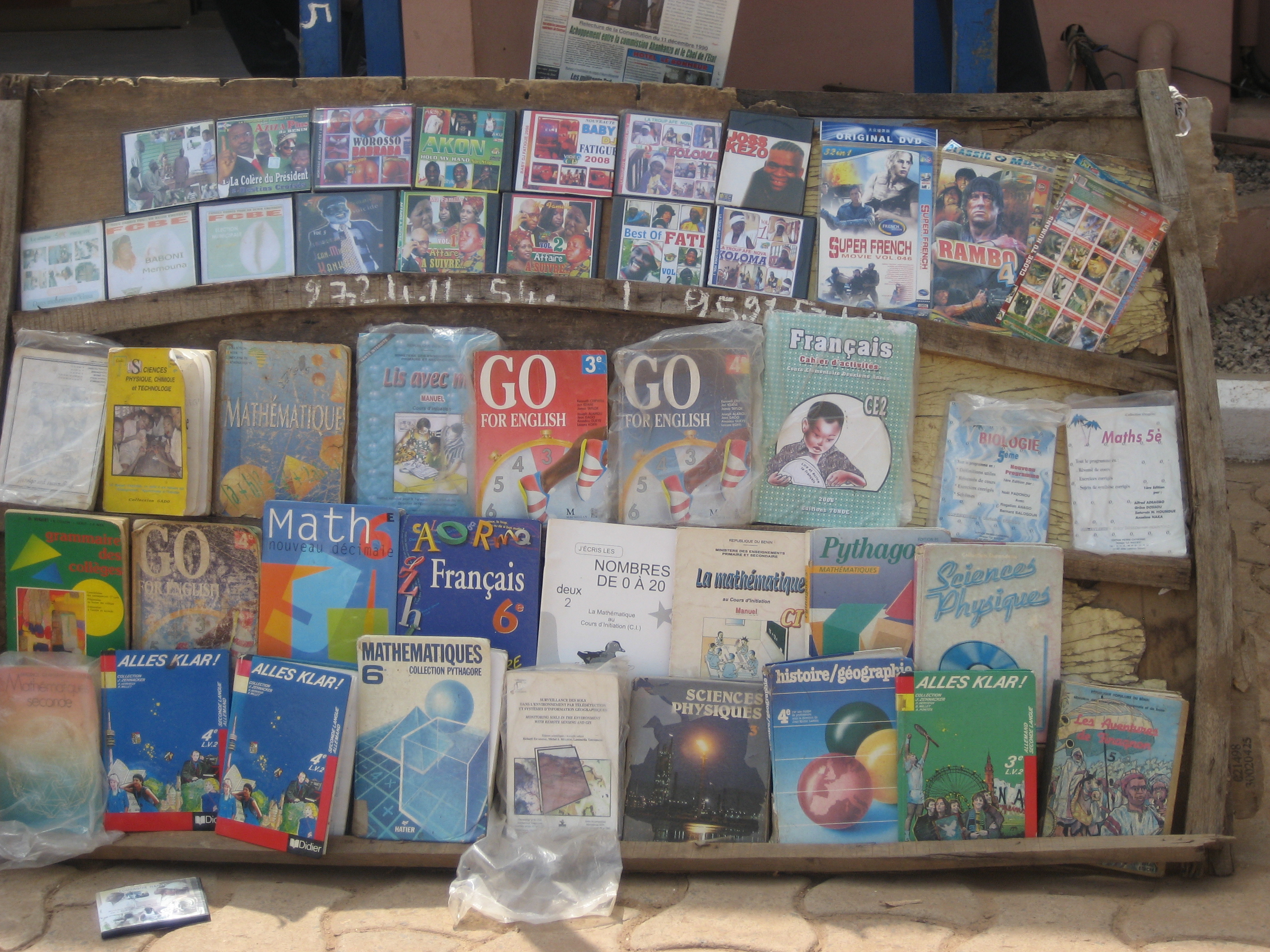
Adventurouspirits
Our trip north must have coincided with a container ship arriving in Cotonou with 100’s of second hand cars and trucks all bound for north of Benin and perhaps Niger . Once again we were in a busy dangerous potholed road with cars of all shapes and sizes speeding past us. Telling the story of where they originally came from by the country code stickers D (Germany), CH (Switzerland) and others. We also encountered the most amazing slow down barriers, large logs, piles of tires, huge rocks scattered along the road, and traffic weaved from side to side. It worked traffic at times was grind to a halt as only one direction of traffic could proceed.
Enlarge
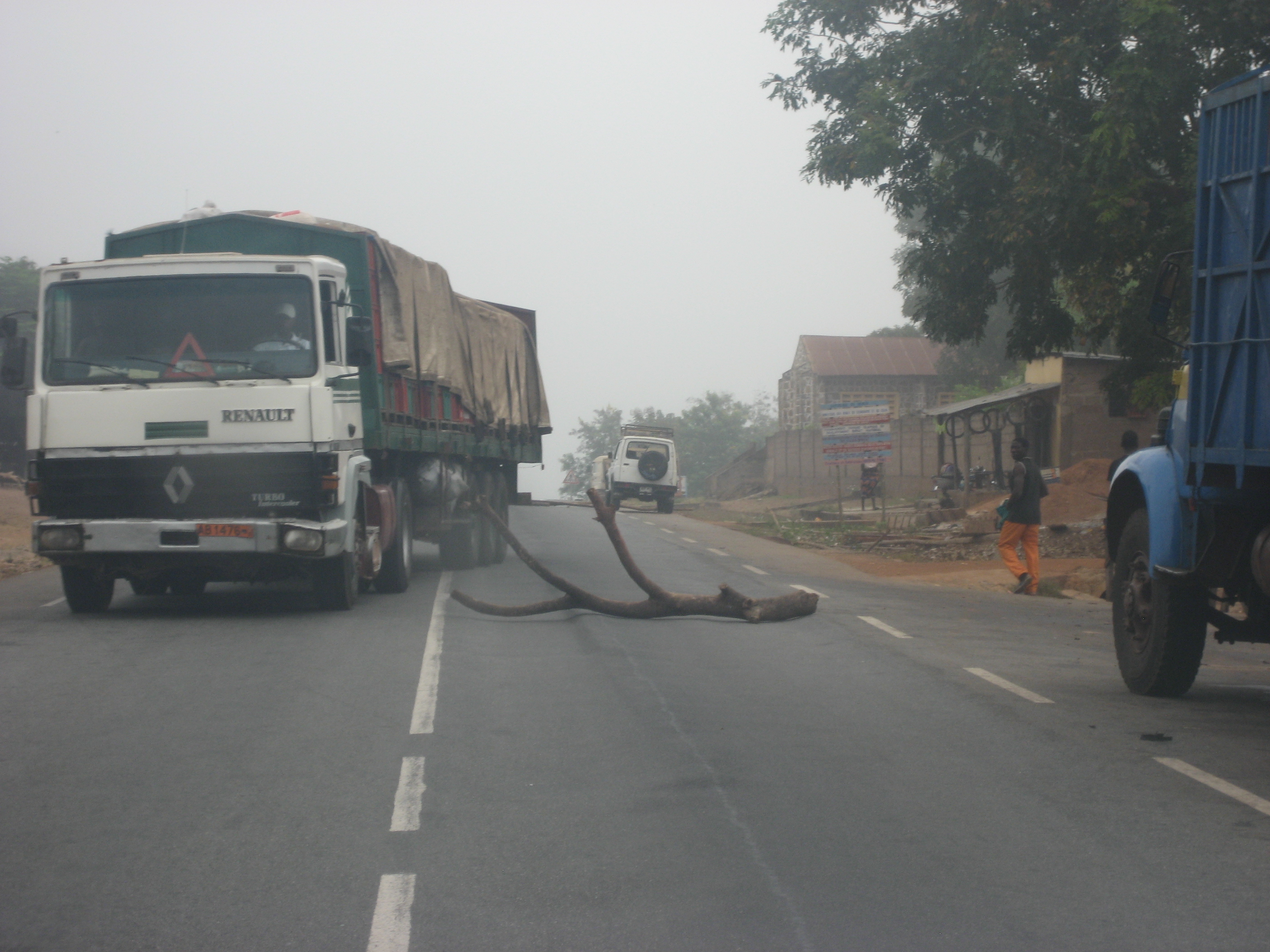
Adventurouspirits
Enlarge
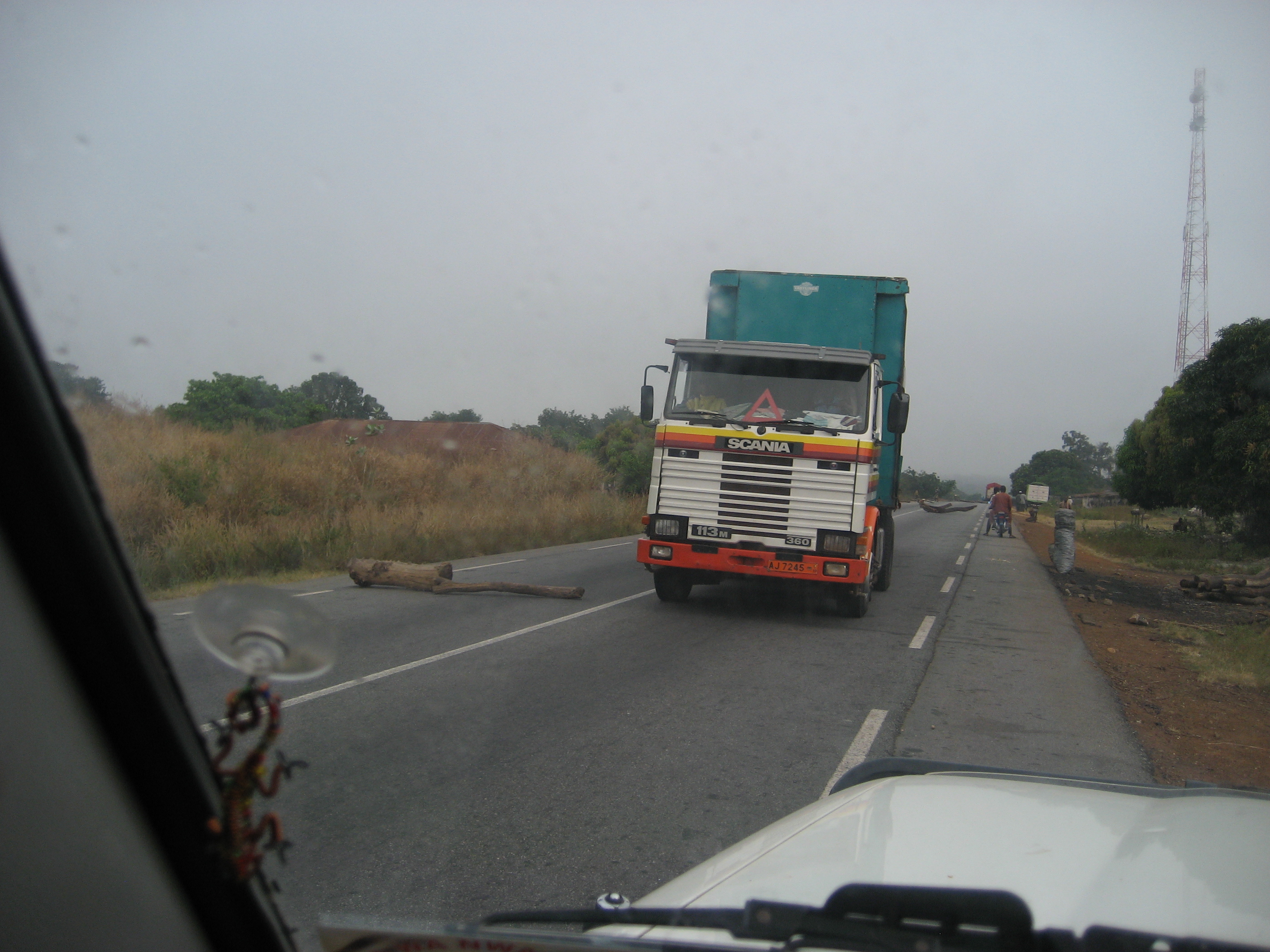
Adventurouspirits
Abomey is a city in the Zou Department of Benin. Abomey is also the former capital of the ancient Kingdom of Dahomey (c. 1600–1904), which would later become a French colony, then the Republic of Dahomey (1960–1975), and is the modern-day Republic of Benin. Abomey houses the Royal Palaces of Abomey, a collection of small traditional houses that were inhabited by the Kings of Dahomey from 1600 to 1900, and which were designated a World Heritage Site by UNESCO in 1985. The Royal Palace is now a museum, which we toured however we were not allowed to take photographs. It told the story of the Dahomey People. For much of the 18th and 19th centuries, the Kingdom of Dahomey was a key regional state, eventually ending tributary status to the Oyo Empire. The Kingdom of Dahomey was an important regional power that had an organized domestic economy built on conquest and slave labor, significant international trade with European powers, a centralized administration, taxation systems, and an organized military. Notable in the kingdom were significant artwork, an all-female military unit known as the Dahomey Amazons, who have associated with them a mythology that the they removed one of their breasts so that they could shoot their bow and arrows more precisely.
Enlarge
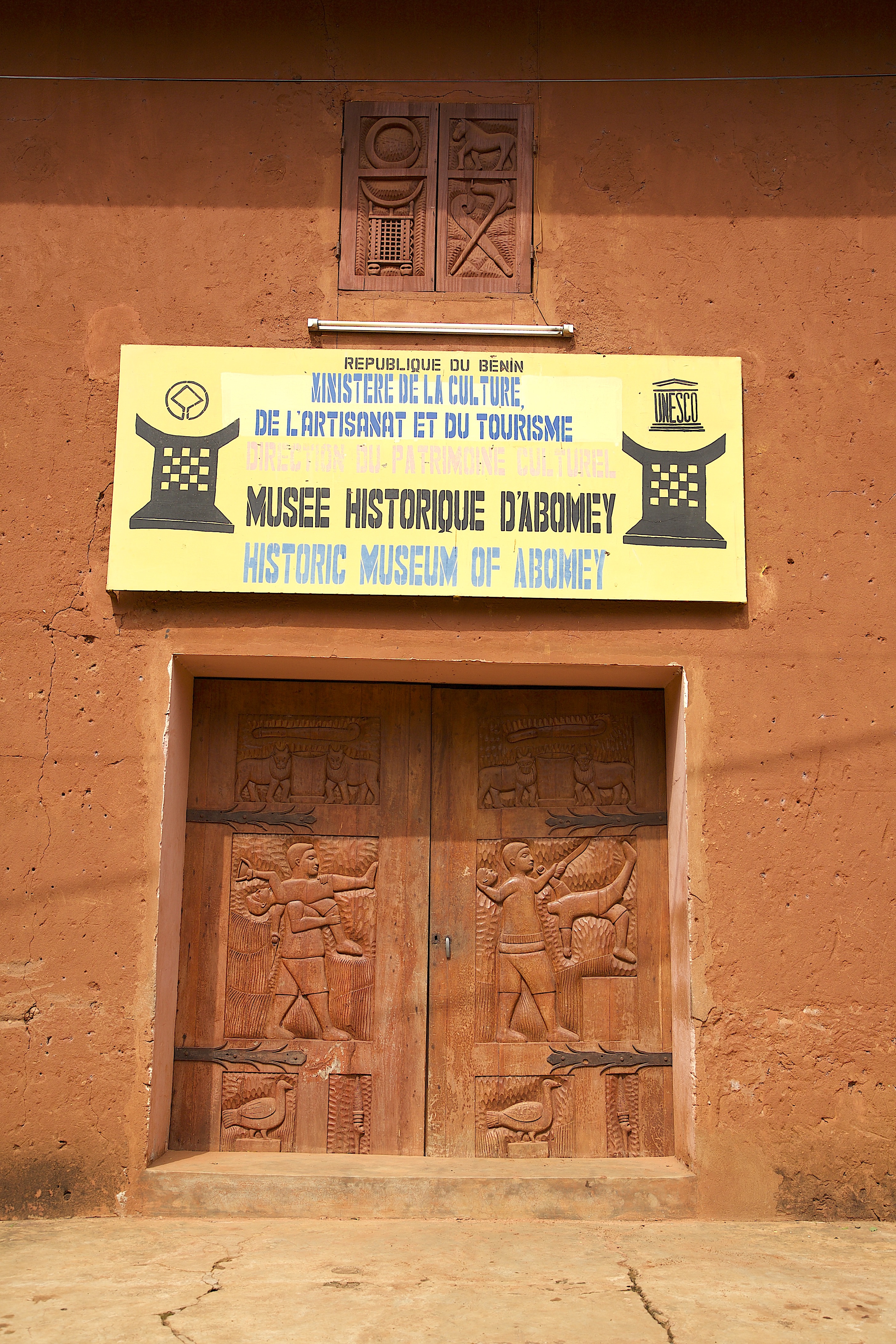
Adventurouspirits
Enlarge
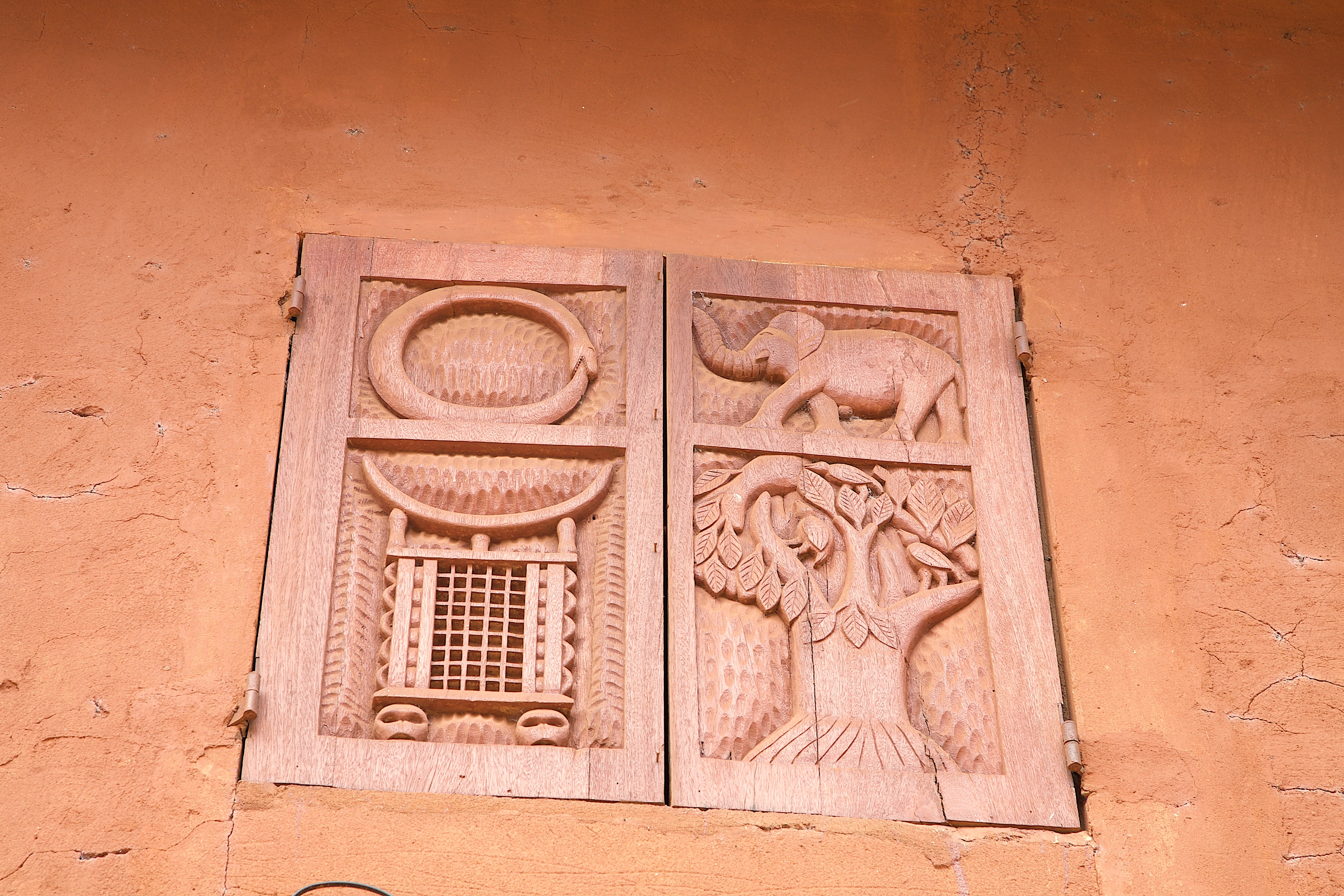
Adventurouspirits
We stopped at Parakow to change some money and buy some bread. Tom went into the bank to change money and returned a little pale and flustered.
“I just met one of the Amazon women from this area,” he said. He described them as huge with a scowled, stern look, she said little other than tell him what to do.
“I felt if I made one wrong move or said one wrong word she would lean over and pick me up by my neck” He went on to say, “They say these women cut off their breasts if it gets in the way of them firing a arrow so I did exactly as they instructed. I wasn’t going to ask any questions”.
We turned off the main road and headed down a dusty track towards a little used border crossing near the town of Nikki, 20km from the Nigerian border where we planned to cross into Nigeria. It was getting dark, the road was deteriorating into a track and we both looked at each other and knew what we were thinking. I hope this border crossing is still working and open.
Enlarge
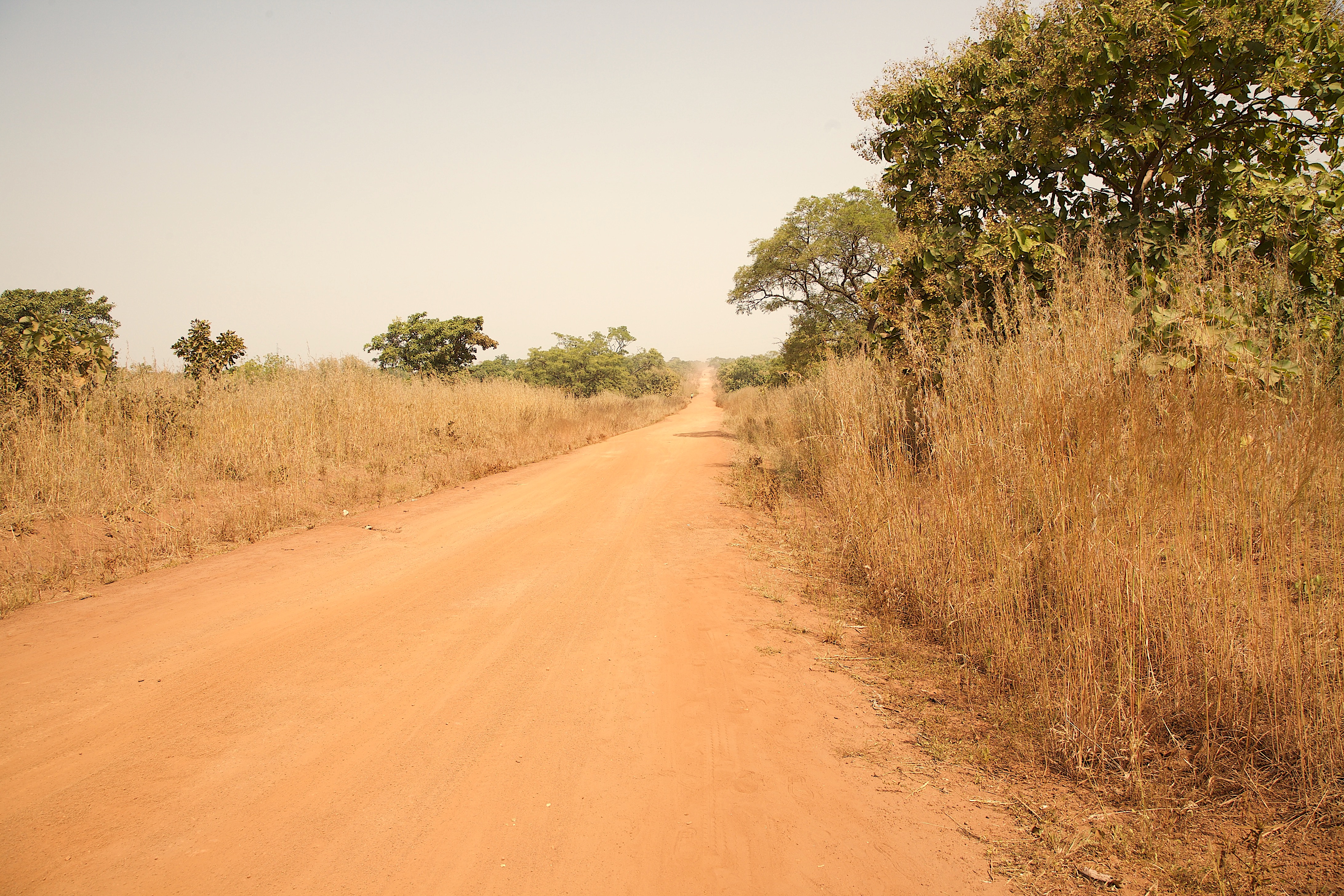
Adventurouspirits
Enlarge
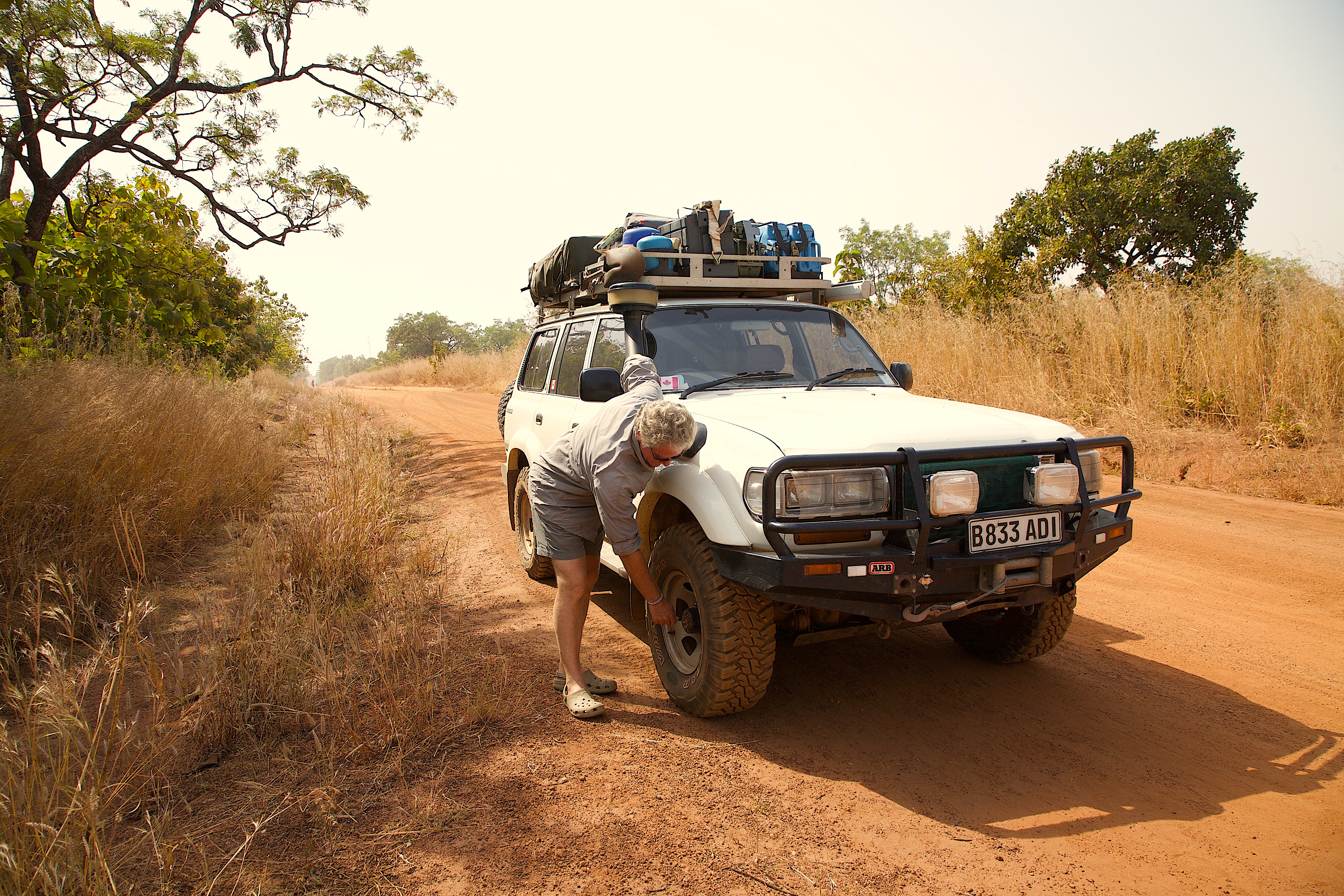
Adventurouspirits
Enlarge
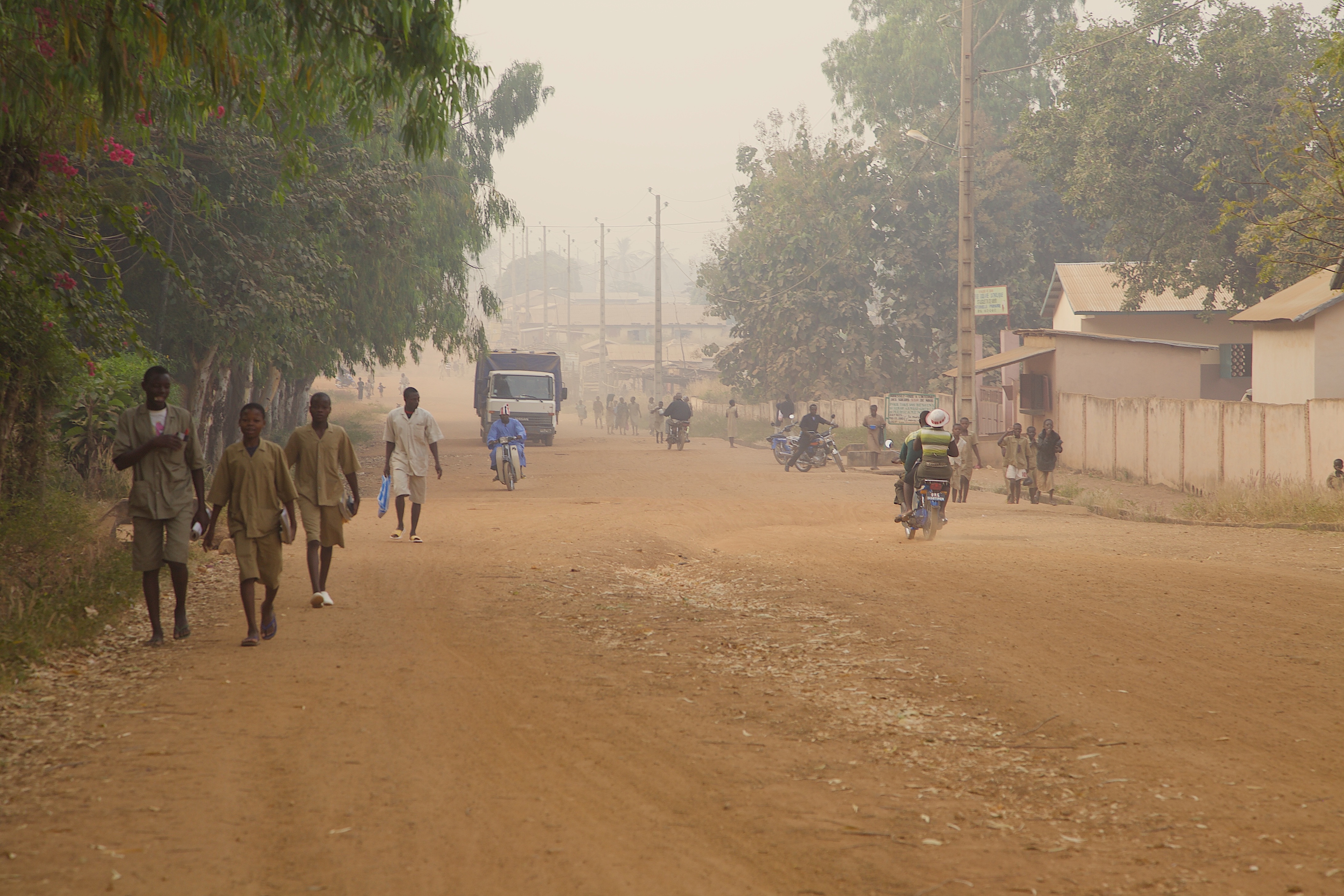
Adventurouspirits
Then we spotted a Catholic Mission. Perhaps they will let us camp in the gardens. No, they would not let us camp but they invited us to stay in one of their rooms.
Enlarge
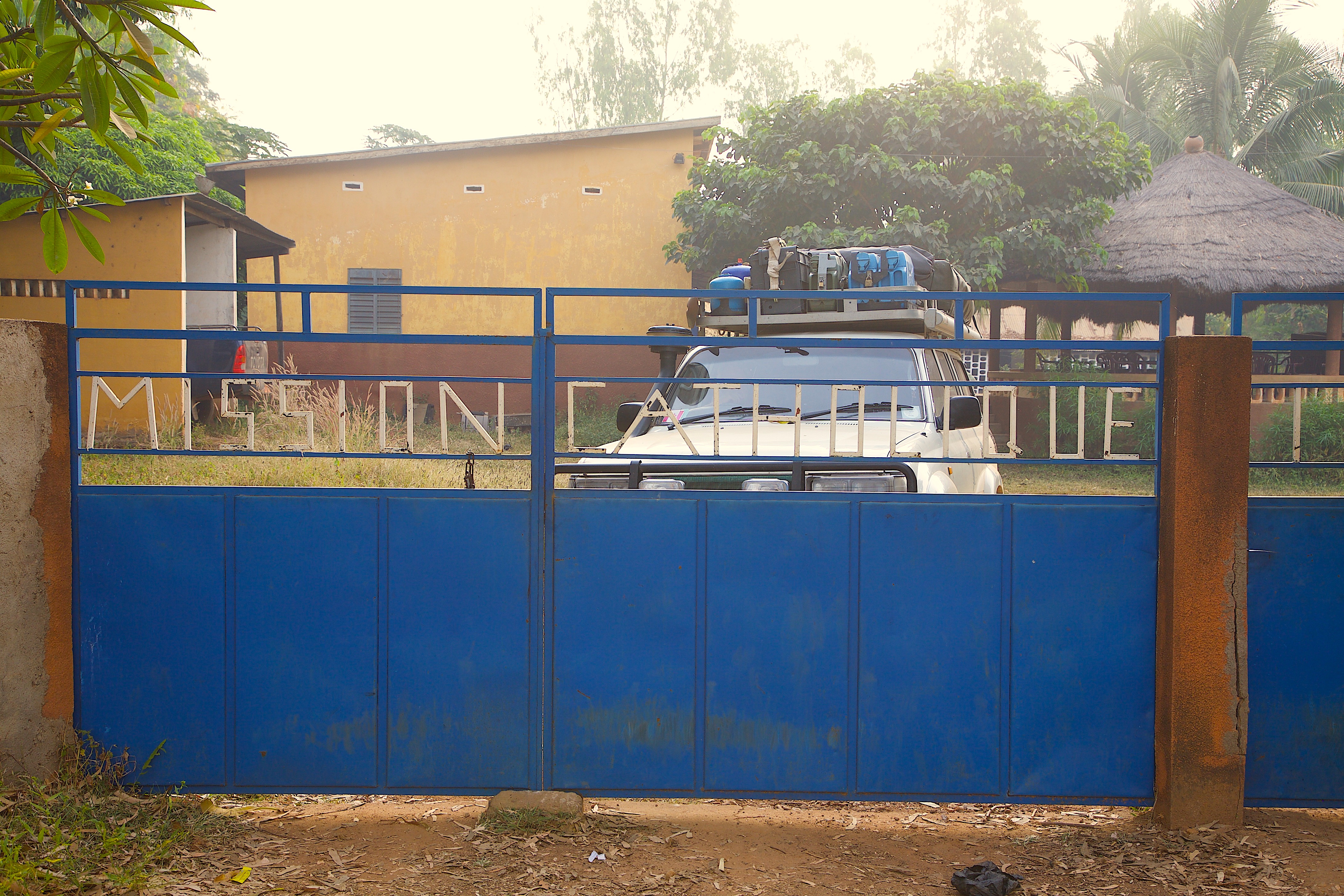
Adventurouspirits
We had a few hours to wonder around the town and came across some school kids playing soccer.
Enlarge
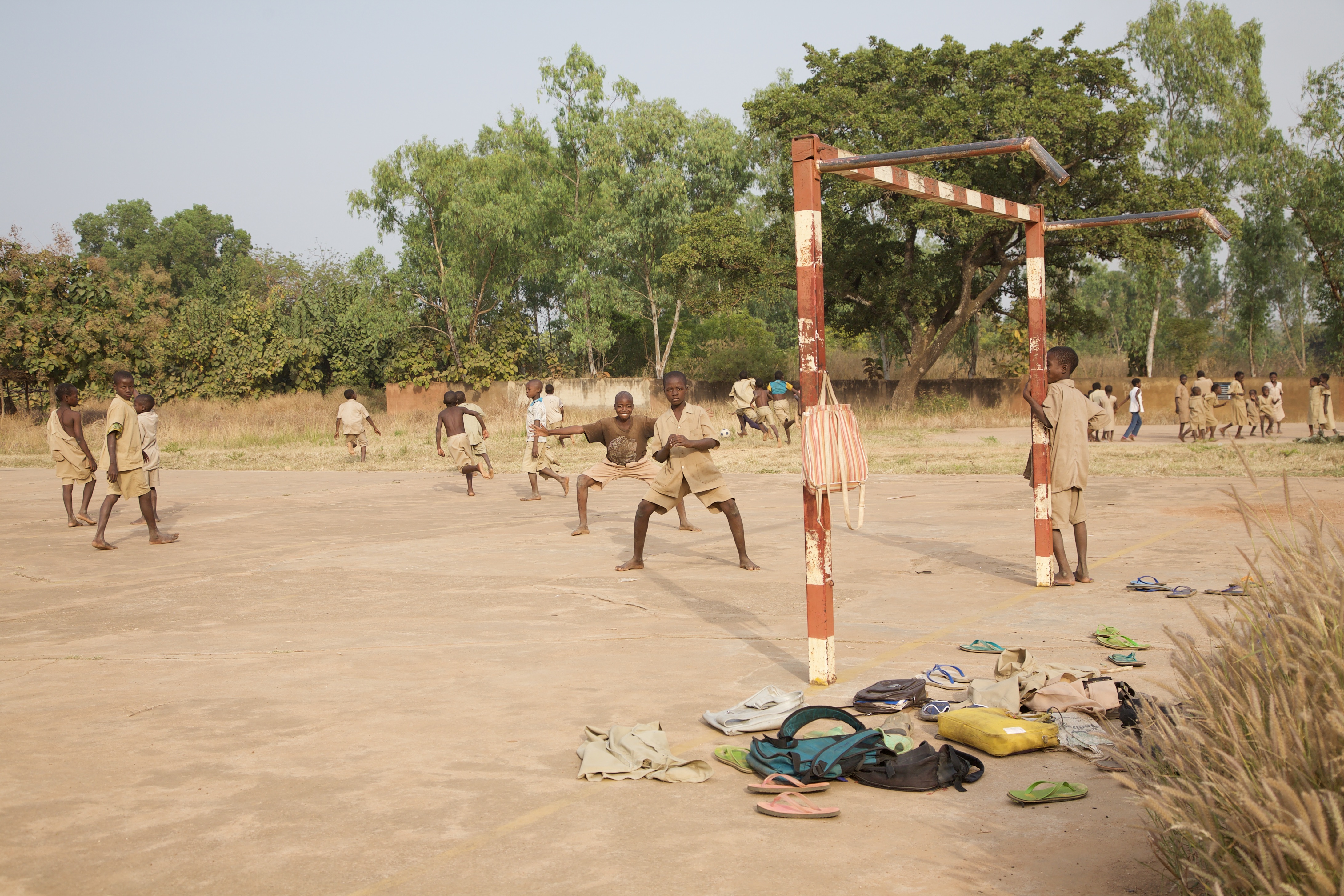
Adventurouspirits
Enlarge
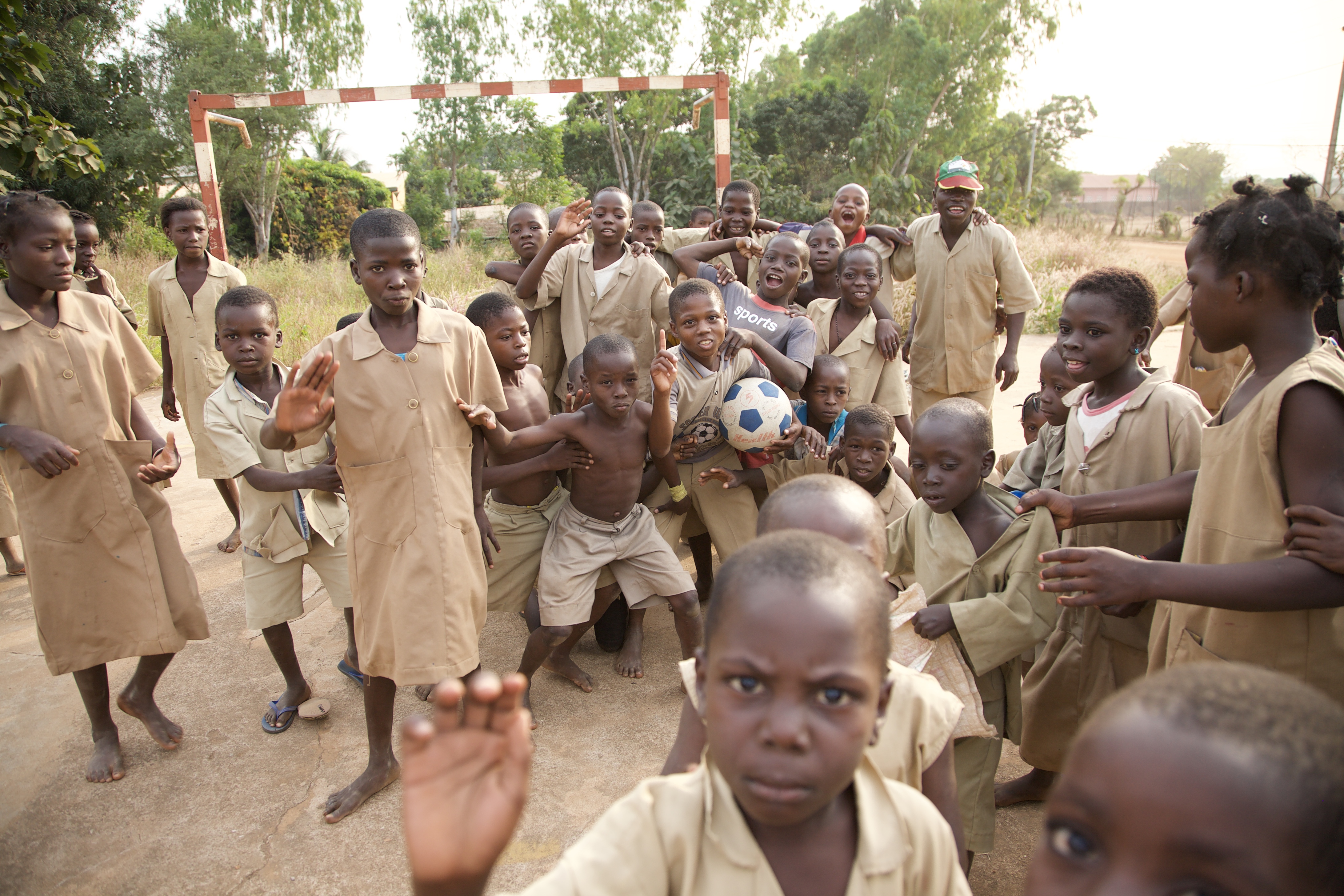
Adventurouspirits
Enlarge
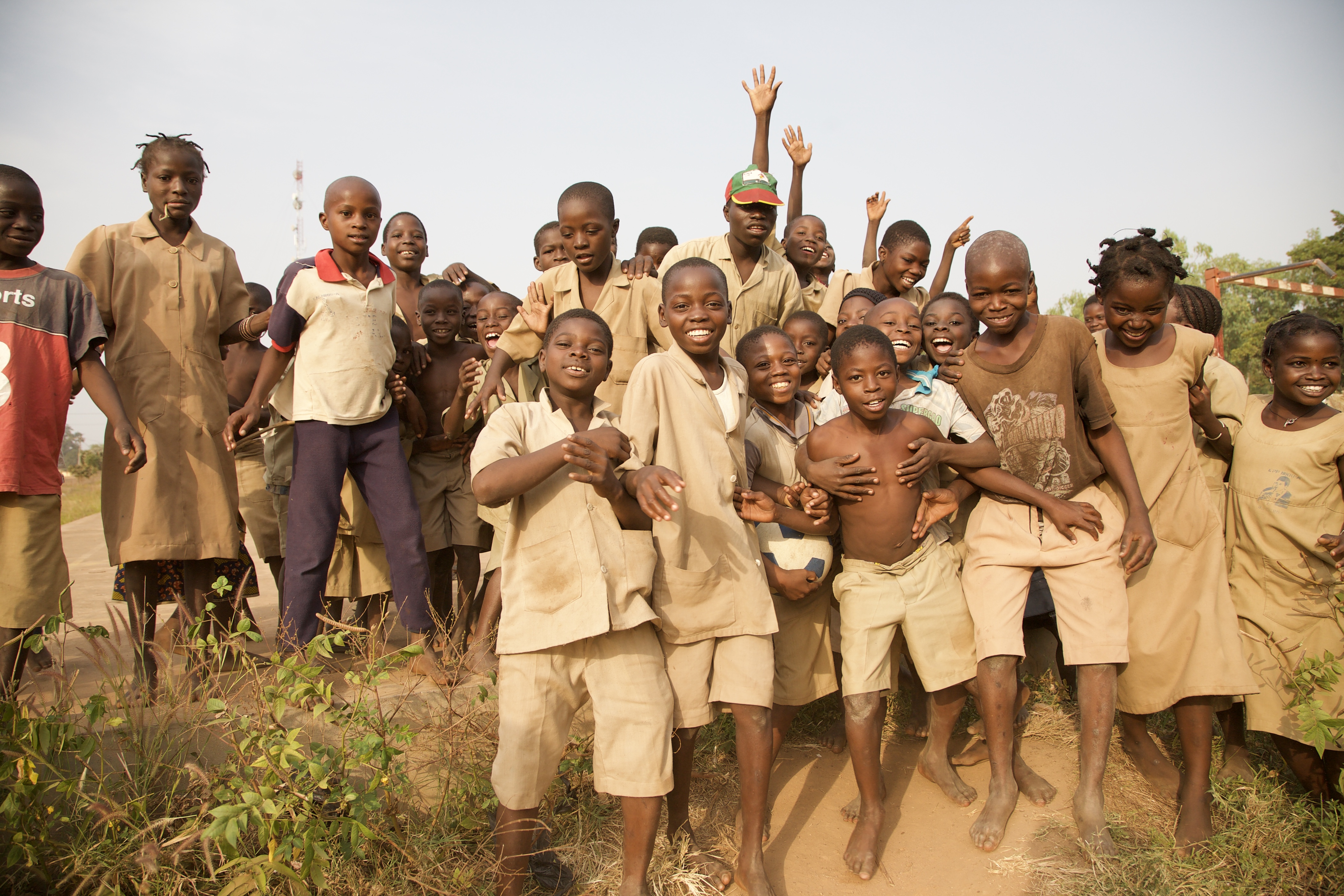
Adventurouspirits
Enlarge
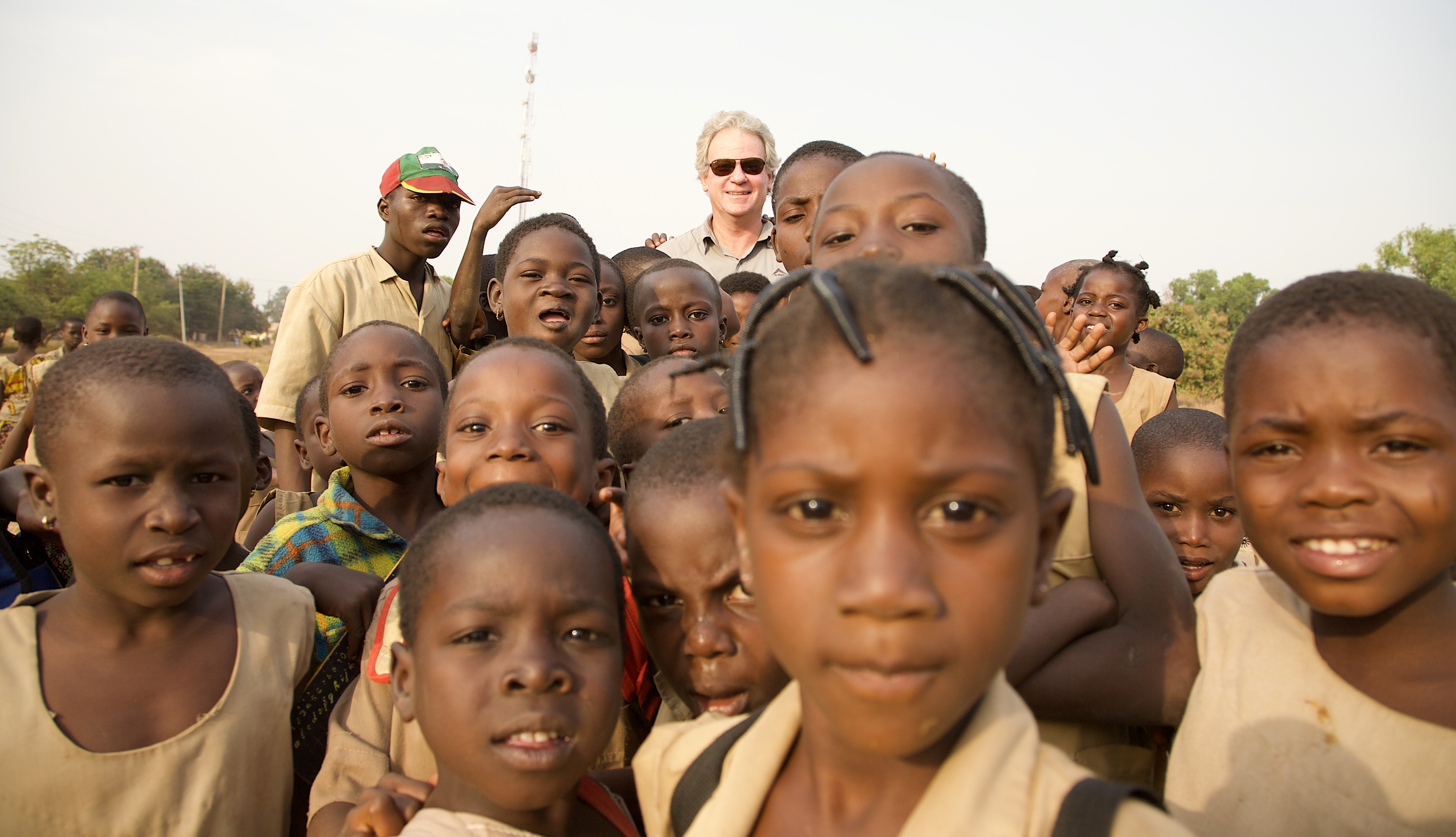
Adventurouspirits
Enlarge
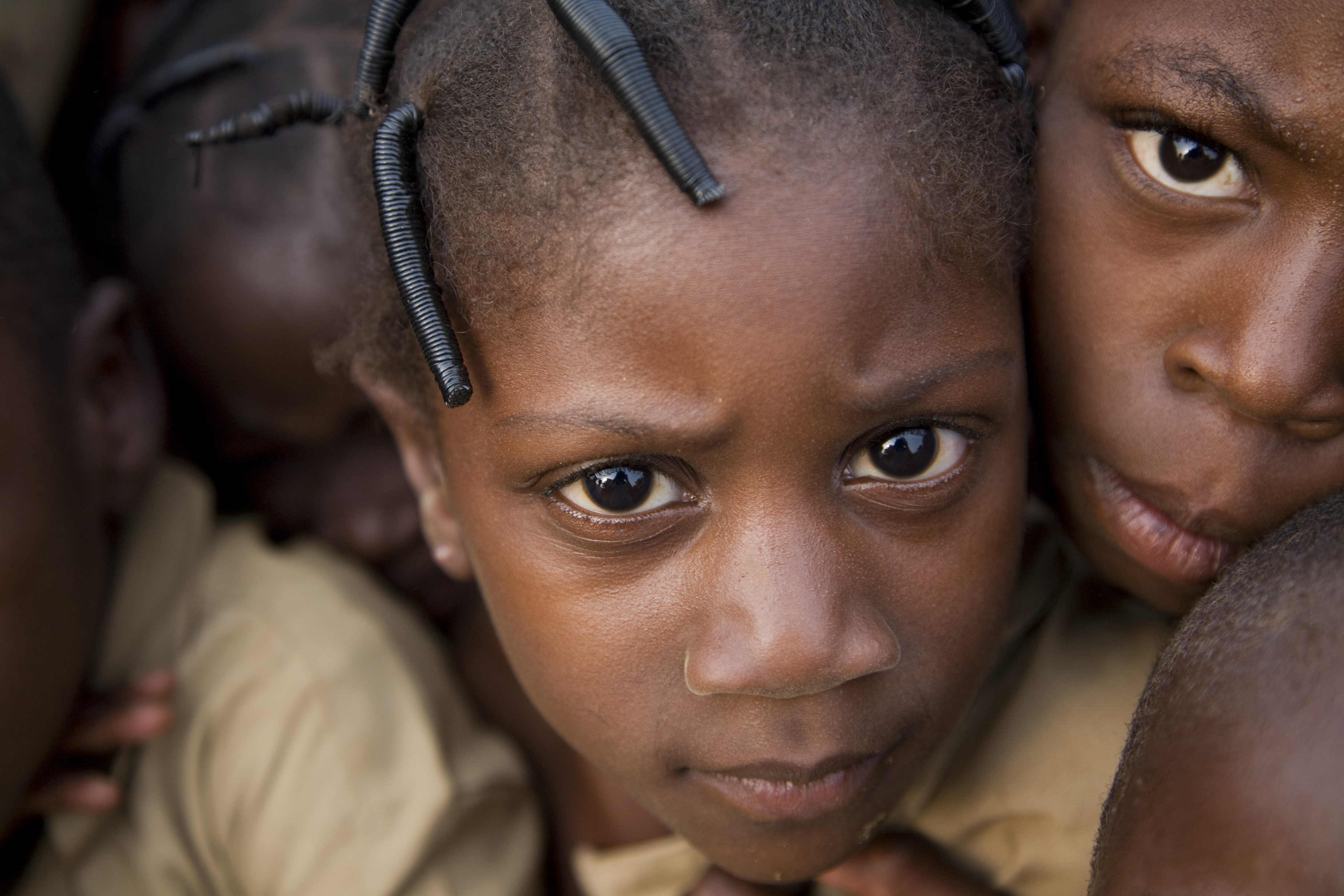
Adventurouspirits
After all the possible photographs had been taken we headed backed to the serenity of the mission. We sat under the full moon and decided to get our fire up the satellite phone and download our email in this peaceful setting. It was here that we learnt that Tom’s mom had died the day before. We felt so far away from our family and friends, there was sadness in the air but we were grateful that she did not suffer. We will miss her dearly.We felt so lucky to have found the mission at this moment.The priests and nuns were at prayer and they sang sweetly. The following morning we made our way to the small and remote Benin-Nigerian border crossing. We had crossed so many borders at this time but we were surprised how small this one was.
Enlarge
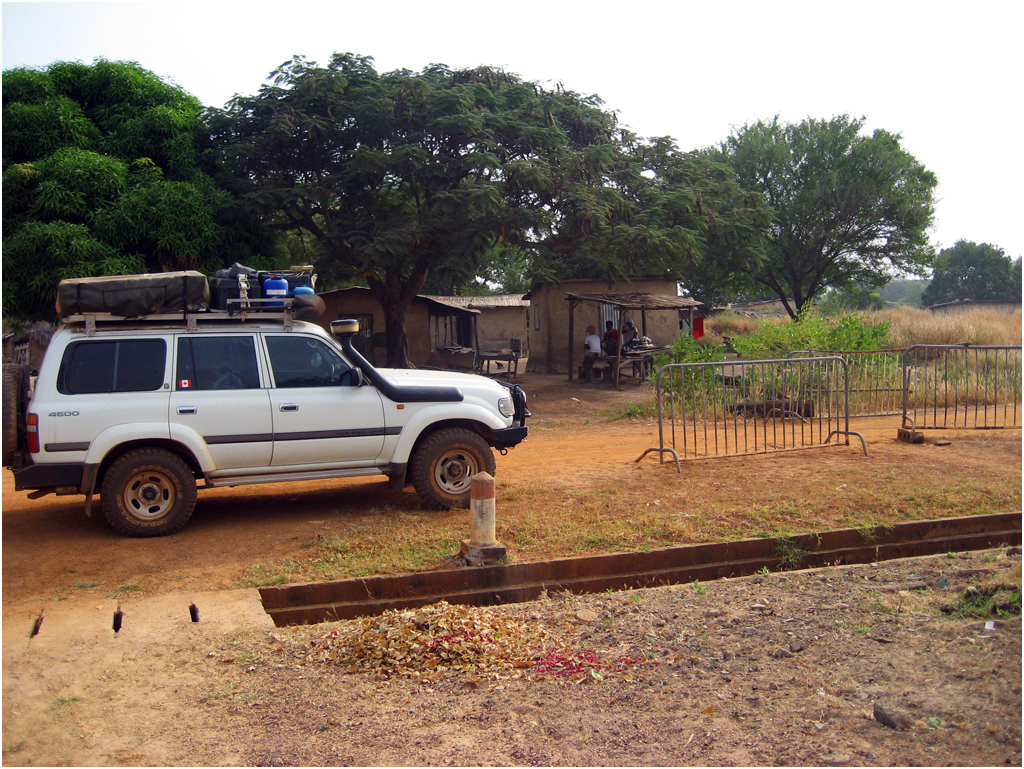
Adventurouspirits
